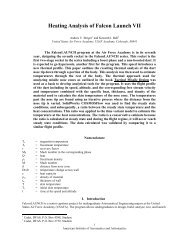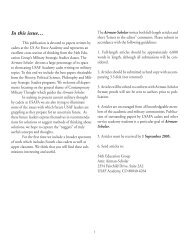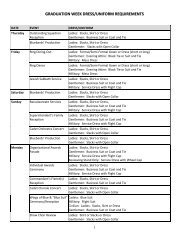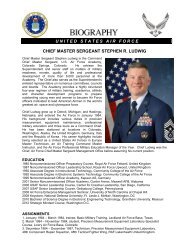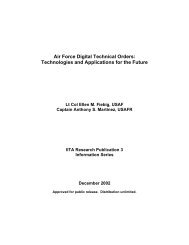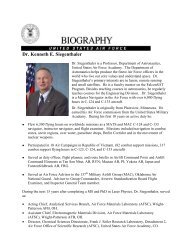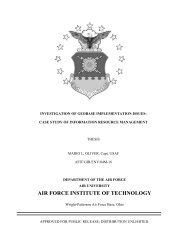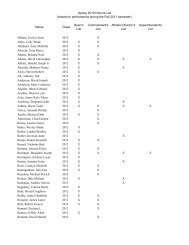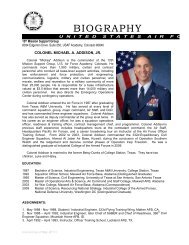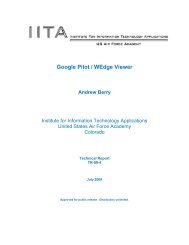the rollback of south africa's biological warfare program
the rollback of south africa's biological warfare program
the rollback of south africa's biological warfare program
Create successful ePaper yourself
Turn your PDF publications into a flip-book with our unique Google optimized e-Paper software.
EXECUTIVE SUMMARY<br />
The pr<strong>of</strong>ile <strong>of</strong> South Africa is <strong>of</strong> an increasingly isolated state that felt<br />
threatened by a more powerful state actor and hostile regimes and<br />
movements in neighboring states. One response <strong>of</strong> <strong>the</strong> apar<strong>the</strong>id regime<br />
to changing threat perceptions in <strong>the</strong> region was to develop a chemical<br />
and <strong>biological</strong> <strong>warfare</strong> (CBW) <strong>program</strong>, along with continued support<br />
for a nuclear weapons <strong>program</strong>, to counter perceived threats. The<br />
decision-making process, which was secretive and controlled by <strong>the</strong><br />
military, enabled a sophisticated <strong>program</strong> to be developed with little<br />
outside scrutiny. Military and police units used chemical and <strong>biological</strong><br />
agents for counter-insurgency <strong>warfare</strong>, assassination, and execution <strong>of</strong><br />
war prisoners. Increasingly, <strong>the</strong> apar<strong>the</strong>id regime felt threatened by<br />
growing political opposition at home that supported <strong>the</strong> liberation<br />
armies’ goal <strong>of</strong> achieving majority rule through <strong>the</strong> use <strong>of</strong> illegal and<br />
violent means. The regime’s increasingly vulnerable position led to plans<br />
for research and development <strong>of</strong> exotic means to neutralize domestic<br />
opponents, as well as weaponization and large-scale <strong>of</strong>fensive uses <strong>of</strong> <strong>the</strong><br />
<strong>program</strong>. However, <strong>the</strong>se plans were not operationalized. The end <strong>of</strong><br />
<strong>the</strong> external threat led to a decision to negotiate with political opponents<br />
and unilaterally dismantle CBN <strong>program</strong>s. However, extensive external<br />
pressures by <strong>the</strong> US, UK and o<strong>the</strong>r countries were required to ensure roll<br />
back <strong>of</strong> <strong>biological</strong> and chemical <strong>program</strong>s. This dismantlement process<br />
proved to be a slow and difficult to implement due to <strong>the</strong> lack <strong>of</strong> civilian<br />
control over military <strong>program</strong>s. Subsequent revelations that <strong>the</strong> former<br />
director <strong>of</strong> Project Coast, Dr. Wouter Basson, had secretly retained<br />
copies <strong>of</strong> classified documents previously thought to be under limited<br />
government control, fuels continuing proliferation concerns in place.<br />
Today a divide exits between those who believe that South Africa<br />
developed one <strong>of</strong> <strong>the</strong> most sophisticated <strong>biological</strong> (and chemical)<br />
ix




